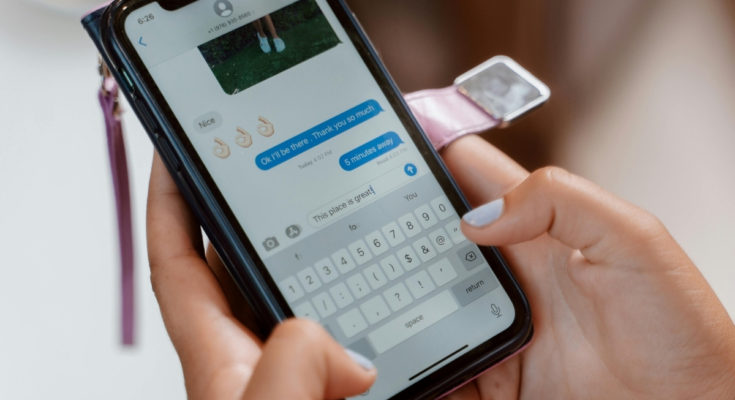Imagine this: it’s 2:03 AM.
You have something to say, something you don’t want tied back to you. A confession, a compliment, a truth you’re not ready to own. In 2015, you’d hesitate. In 2025, you just… send it.
No app to install. No account to create. No trace left behind.
Anonymous text messaging has quietly evolved from a sketchy internet loophole to a trusted form of digital expression. And Gen Z is leading the charge not to hide, but to speak freely, with zero pressure.
So how did we get here?
Let’s break down what changed, what’s working, and why this version of anonymous messaging might be the most honest thing online right now.
Why Do People Still Crave Anonymity in 2025?
Because identity is heavy.
The more digital our lives get, the more we start curating everything from our Instagram posts to our typing speed on Slack. Even a meme reply can be overthought.
Anonymity offers relief. Not to troll, but to be real.
- You can compliment someone without making it awkward.
- You can confess without shame.
- You can ask the thing you’re too afraid to ask in public.
And now that end-to-end encryption, auto-deletion, and no-login-needed tools are becoming the norm, anonymous texting is finally feeling… safe.
What’s Changed Since the Early Days of Anonymous Texting?
Let’s not romanticize the past.
Back in the day, anonymous messaging meant shady websites, SMS prank tools, or apps that were basically data goldmines. You’d send a text and hope it didn’t come back to haunt you.
Now?
The 2025 version is smarter, sleeker, and more secure.
Here’s what’s different:
1. No App, No Fuss
Modern platforms like SecretNote.me don’t require a download. It’s all browser-based.
- No notifications.
- No digital footprint.
- No ties to your SIM, IP, or login.
You just type, send, and disappear into the ether.
2. Encryption by Default
Today’s platforms don’t just delete, they protect. End-to-end encryption ensures your message can’t be intercepted mid-air or read later. Even the platform itself can’t see what you wrote.
That’s not just privacy. That’s freedom.
3. Auto-Delete = Auto-Relief
Some messages are meant to vanish.
That’s why most anonymous texting tools now include auto-deletion after reading like a whisper in the wind. No awkward re-reads. No screenshot paranoia. Just one moment, lived and let go.
So, How Do You Actually Send an Anonymous Text in 2025?
You’ve got options. And each comes with its own vibe.
Let’s break down the 3 main paths:
Option 1: Web-Based Anonymous Note Tools (Like SecretNote.me)
This is the no-login, no-hassle route.
- Go to the site
- Type your message
- Get a unique link
- Share that link via WhatsApp, DM, email whatever
No one knows who wrote it. And if the platform auto-deletes after it’s opened, your message becomes a one-time thing. Like a secret passed in class.
Option 2: Burner SMS Services (Still Around, Still Risky)
These platforms give you a temporary number to send texts.
While still popular for things like OTP bypass or Craigslist deals, they come with the risk that you’re trusting a third-party with your texts, and many don’t offer proper encryption.
It’s fast, but not always safe.
Option 3: Encrypted Messaging Apps with “Anonymous” Modes
Some apps now include “anonymous” message modes like Telegram bots or disappearing messages on Signal. These offer more structure but require installing an app and linking to an account, which isn’t truly anonymous.
So if your goal is full detachment, browser-based is still king.
Who’s Actually Using This in 2025?
Surprisingly, not just teens.
Anonymous text messaging has evolved into a tool for emotional clarity, not just digital mystery.
Here’s who’s using it:
- Gen Z friend circles: sending anonymous compliments, birthday surprises, or ‘truth bombs’
- Crush confessioners: dropping links with “open this when you’re alone”
- Anonymous team feedback: workplace shoutouts or criticisms without social tension
- Mental health venting: expressing feelings without fearing judgment or labels
It’s not about hiding. It’s about releasing.
Is It Actually Safe to Send Anonymous Texts?
Short answer: yes, if you’re smart about it.
Here’s what to watch for:
Choose platforms with:
- End-to-end encryption
- No login or phone number required
- Auto-deletion options
- A clean reputation (like SecretNote.me)
Avoid platforms that:
- Ask for personal data
- Save messages indefinitely
- Show ads or spammy popups
- Don’t mention security anywhere
If it feels sketchy, it probably is.
What Makes This Trend Work in 2025 Culture?
Let’s zoom out.
This isn’t just a tech thing. It’s a social shift.
We’re living in a time when people want to share more honestly but feel less safe doing it in public. The internet has taught us to brand ourselves. Anonymity lets us unbrand even for a moment.
And Gen Z, more than any generation before, understands the nuance:
- You can be anonymous and still kind.
- You can send something private and still be respectful.
- You can use disappearing messages to create something meaningful, not just mischievous.
This is digital intimacy, not digital chaos.
So What’s the Future of Anonymous Messaging?
It’s already here and it’s lighter.
Not emotionally lighter. But technically.
No bloated apps. No shady signups. No hidden fees. Just a clear space to say what you mean and then let it go.
And platforms like SecretNote.me are leaning into this ethos:
- Anonymous notes that don’t require you to create an account
- Auto-deletion after a single read, so nothing lingers
- End-to-end encryption to protect the things you don’t say out loud
It’s a space that’s becoming more than messaging. It’s emotional infrastructure.
Final Thought: What Happens When You Remove the Identity Filter?
Something beautiful.
People get bold.
People are kind.
People get honest.
In a world that constantly asks you to “build your brand,” anonymous text messaging gives you the chance to just be with no label, no pressure, no history.
It’s not a hack. It’s a new kind of communication.
And in 2025, it’s finally safe enough to embrace.



